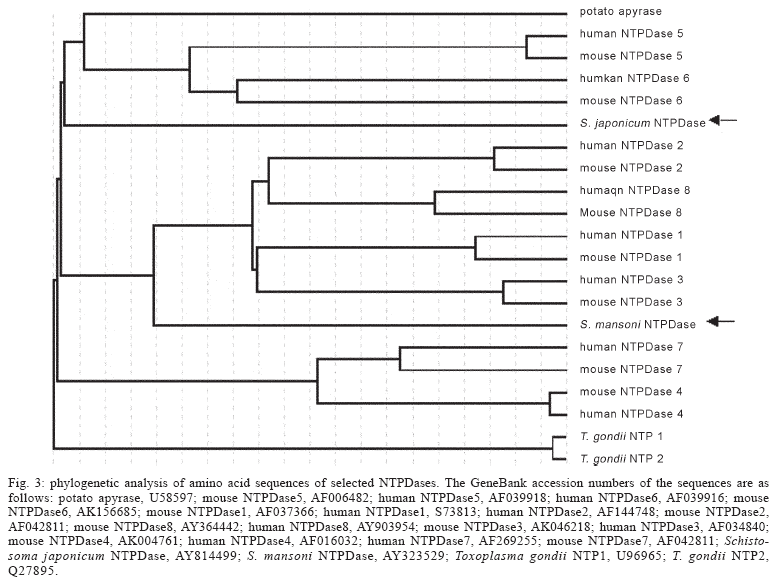We have previously showed that Schistosoma mansoni ATP-diphosphohydrolase and Solanum tuberosum potato apyrase share epitopes and the vegetable protein has immunostimulatory properties. Here, it was verified the in situ cross-immunoreactivity between mice NTPDases and anti-potato apyrase antibodies produced in rabbits, using confocal microscopy. Liver samples were taken from Swiss Webster mouse 8 weeks after infection with S. mansoni cercariae, and anti-potato apyrase and TRITC-conjugated anti-rabbit IgG antibody were tested on cryostat sections. The results showed that S. mansoni egg ATP diphosphohydrolase isoforms, developed by anti-potato apyrase, are expressed in miracidial and egg structures, and not in granulomatous cells and hepatic structures (hepatocytes, bile ducts, and blood vessels). Therefore, purified potato apyrase when inoculated in rabbit generates polyclonal sera containing anti-apyrase antibodies that are capable of recognizing specifically S. mansoni ATP diphosphohydrolase epitopes, but not proteins from mammalian tissues, suggesting that autoantibodies are not induced during potato apyrase immunization. A phylogenetic tree obtained for the NTPDase family showed that potato apyrase had lower homology with mammalian NTPDases 1-4, 7, and 8. Further analysis of potato apyrase epitopes could implement their potential use in schistosomiasis experimental models.
cross-immunoreactivity; Schistosoma mansoni ATP diphosphohydrolase; mammalian NTPDases; potato apyrase; granuloma




